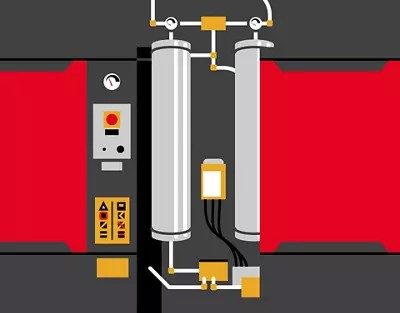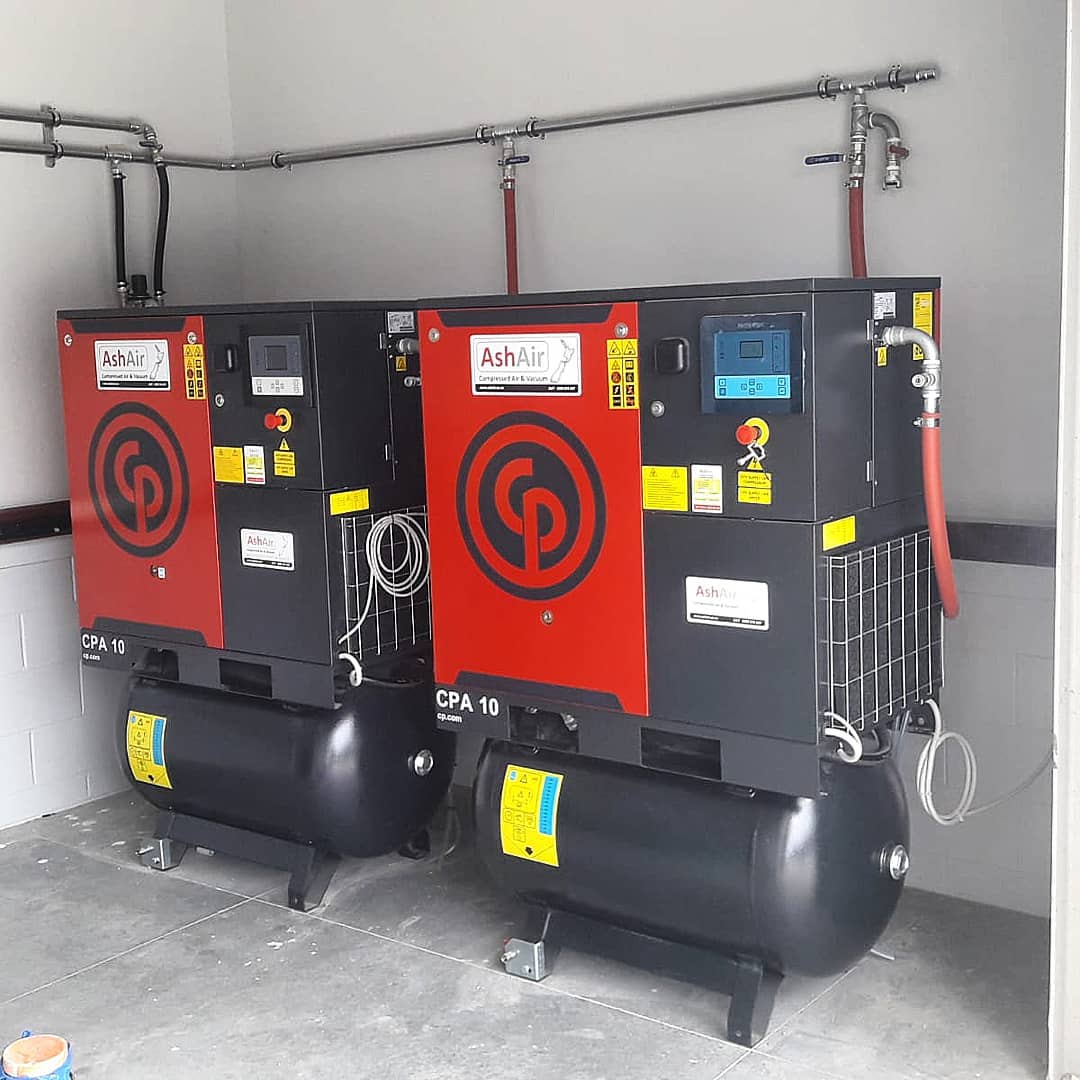Proportioning the Compressed Air Dryer
Trying to figure out which air dryer capacity is best for you? Here are some factors to consider. Read More…
When your business depends on compressed air can you really be without? Having a second compressor can come in handy and keep your business always up and running. The configuration of the second unit can be as a backup machine, or as a redundant unit with your other compressor, or as a backup if your main compressor goes down.
 Backup
Compressor
Backup
Compressor
Think of a backup air compressor as your insurance policy. It is there just in case you need it. Without a backup compressor available for immediate use, your production, time, and of course your money in the short-term can be affected. All of these can be very harmful to the business’ bottom line.
A standby compressor is readily available in case an unexpected event occurs or if an increase of production occurs, your standby compressor will kick on. Your standby compressor will only come on when needed, bringing standby compressors on-line incrementally during periods of peak demand. Have you heard of the term “lead-lag”? With two compressors in the system, one compressor can be set as the lead machine, and the other as the lag machine. When the pressure drops to a certain point on the lead compressor, the lag compressor will then take over.
‘Redundancy’ is a term often used in the air compressor world. The word redundancy means that a second compressor is operating in parallel with the primary compressor and both are sharing the demand. Should the primary unit fail, the second unit takes the full service. This ensures your operation is never without compressed air.

- Having a second compressed air machine allows for maintenance to be done at any time.
- Never have your business offline with down time due to a compressor.
- You need a replacement part for your compressor? Now you have more downtime waiting for that to come in. Having a second machine won’t make you sweat while waiting.
- Tip: As your business grows and your air demands increase you'll get a new, bigger one, and then use the old one for a backup. Consider investing in a second machine as a strong investment with a great ROI. Even if your air compressor is brand new – you never know when it can fail for any reason, at any time, no matter what brand or size it is. Regrettably, that is the way it is with any piece of man-made machinery.
Now, let us ask you again, “Why does your business need a backup air compressor?” It’s because there’s no situation where your business
won’t hurt without one. For more information on having a back-up, standby or redundant compressor, please let us know.
Do you have an idea for our #expertcorner? Let
us know!
Ash Air has been around in New Zealand since 1979, and we’ve grown into a nationwide company with international support and a reputation for quality and reliability.We look after all things compressed air for your business!
Ash Air's range of Chicago Pneumatic, Alup, Pneumatech, and Quincy compressors are used extensively around the world in industries ranging from oil and gas to food, automotive and farming, and we bring you these world class compressors here in the land of the long white cloud.Our technicians are compressed air equipment experts and are dedicated to addressing customer needs. Supported by a 13 locations nationwide, Ash Air offers one of the widest selections of compressed air equipment and parts available today in New Zealand.
With Ash Air compressors, you can count on reliability and high performance for even the most demanding applications. We focus our efforts on the following:
Talk to the team today:
Proportioning the Compressed Air Dryer
Trying to figure out which air dryer capacity is best for you? Here are some factors to consider. Read More…
Maintenance budget: 8 factors to consider
Just like any other equipment, a compressed air installation also requires the necessary maintenance work during its entire lifespan. Even though maintenance costs are only about 5 to 10% of a machine's annual operating costs, failure to budget for maintenance can have potentially disastrous consequences. Read More…
The air dyer is one of the most ignored cooler in the system. A dirty condenser will cause water in the lines, or worse it will cause complete dryer failure. Read More…
Why Replace CO2 with Nitrogen in your Brewery
Using nitrogen is not about fully replacing CO2, but it can reduce their consumption of CO2 by close to 70%. Using nitrogen is about sustainability. Creating your own nitrogen is easy and will reduce the use of a greenhouse gas, which is better for the environment. It will also save you money as early as month one adding that savings to your bottom line. Read More…
What do I need to know about ICONS?
ICONS: Intelligent Connectivity System: The insight into your compressed air system, wherever you are. Learn More about ICONS in this article here! Read More…
A question that is occasionally asked by our customers to Ash Air is 'what is the cost of compressed air?' This article looks at the product costs involved with compressed air, as well as minimising the energy cost of compressors and cost allocation. When looking at these factors, we need to realise what causes dropped efficiency of your compressor, leading to increased costs of compressed air. Read More…